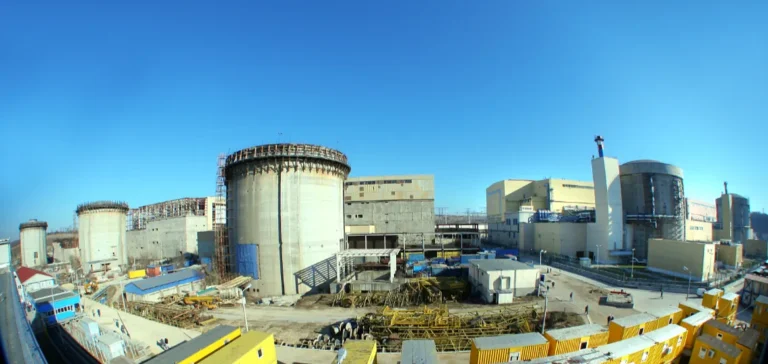Romanian nuclear energy company Nuclearelectrica has signed two financing agreements totalling €620mn ($728mn) to support its projects at the Cernavoda site. The operation includes a €540mn ($634mn) syndicated loan for the full refurbishment of unit 1, along with an additional €80mn ($94mn) to fund the preparatory phase of units 3 and 4.
A banking consortium led by JP Morgan
Financing for unit 1 is provided by a group of nine banks, including JP Morgan SE (Germany), ING Bank NV Amsterdam-Bucharest, Citibank Europe PLC, UniCredit Bank SA, BRD Groupe Société Générale SA, Banca Transilvania SA, CEC Bank SA and Banca Comercială Română SA. For units 3 and 4, most of the same institutions are involved, excluding Citibank.
Unit 1 of Cernavoda, which began operations in 1996, is currently undergoing refurbishment as part of the second phase of a three-stage plan launched in 2017. This phase includes planning, signing engineering and construction contracts, acquiring long-cycle equipment, establishing infrastructure and securing necessary regulatory approvals.
A multi-billion euro expansion plan
The unit 1 refurbishment project is estimated at €1.9bn ($2.23bn) and was awarded in December to a consortium led by Korea Hydro & Nuclear Power, along with Candu Energy (a subsidiary of AtkinsRéalis), Canadian Commercial Corporation and Ansaldo Nucleare.
In parallel, preparation for the construction of units 3 and 4 is progressing under an Engineering, Procurement and Construction Management (EPCM) contract signed in November with the FCSA Joint Venture. This group includes Fluor, AtkinsRéalis, Ansaldo Nucleare and Sargent & Lundy Energie, with an estimated value of €3.2bn ($3.76bn).
Gradual restart of Romania’s nuclear fleet
The €80mn loan for units 3 and 4 will support the Limited Notice to Proceed phase, covering engineering work, financial structuring, compliance assessment by the European Commission under Article 43 of the Euratom Treaty, and the adoption of a Final Investment Decision.
Initial work on units 3 and 4 began in the 1980s before being halted. As of today, unit 3 is 52% complete and unit 4 is 30% complete. Nuclearelectrica targets commercial operation in 2030 for unit 3, followed by unit 4 in 2031.
The Candu reactors at the Cernavoda site, which are pressurised heavy water reactors, are designed to operate for 30 years, with the option of a 30-year extension following refurbishment. The process involves removing all fuel and heavy water, dismantling thousands of components, and replacing all 480 fuel channels and 960 feeder tubes with high-precision techniques.






















